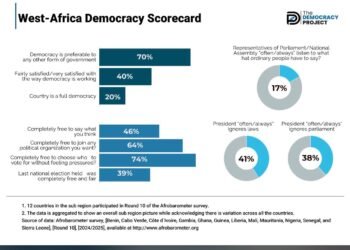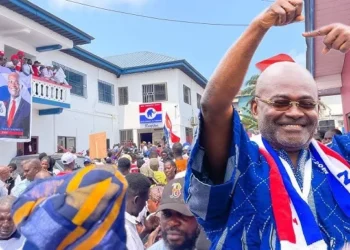Ghana’s democratic Parliament, a few days ago was half empty, as a Parliamentary session was skipped by the Minority Caucus in Parliament.
In order to support members of its side of the caucus who are defending themselves in various courts of law, the Minority in parliament made the decision to skip parliamentary sessions as need be, to prove their love and support by being represented to ensure justice.
This has raised questions as to whether the skipping of parliamentary sessions by the minority caucus is lawful or an act of the misuse of parliamentary powers. On the other hand, members of the caucus seem to be in high hopes that the decision is the best at the moment; but at what cost?
Can one decide not to show up to work at a whim just because a colleague is being queried or questioned by the upper echelon or boss? It is unlawful and unheard of, as the employer (electorates) has the power to relieve the employee of his or her position when something of this sort ensues. In this case, the minority caucus ditching parliamentary sessions on days caucus members have court hearings, could be relieved from their positions by the electorates in the upcoming elections.
However, Samuel Okudzeto Ablakwa, the North Tongu Member of Parliament, acknowledged that Parliament will be adversely affected due to Gyakye Quayson’s case. Why then would the Minority in Parliament still go ahead with boycotting house sessions, when it is aware of the ramifications.
As much as the Minority is free to voice its support for any member, the decision to boycott sitting due to criminal charges instituted by the republic against a member of the caucus is worrying and a disturbing act.
It could also be said that if the Minority believes that a colleague in parliament deserves the caucus’ unwavering attention during court proceedings to the extent of missing out during parliamentary sittings, then why is same not done for members of the political party; who put the MPs in power, when they are in situations that deserve support from the party in court.
Power’s Expediency
Transparency and accountability are necessary in building a democratic governance, rule of law and a parliament. Therefore, the MPs who decide to skip parliament sessions when the house has been ordered to meet should face the necessary consequences of boycotting parliament.
The role of a Member of Parliament is to exercise the power put into its hands by the electorates to make deliberations and make things better for its respective constituencies.
Despite these challenges, parliament has chief whips from both caucuses who are to ensure that party members in parliament attend meetings but if the party whip is also boycotting, then who can make the MPs face the necessary consequences?
Then, this falls to the people to hold their respective MPs accountable for their actions. The electorates must put their MPs on their toes because when too much power is given to an individual without a limit or a bar for checks and balances, power is abused.
The Minority caucus skipping parliament provides the opportunity to be held accountable when decisions in parliament and votes are carried out on issues without the approval or involvement of the caucus. Nonetheless, it also gives the majority in parliament the opportunity to walk out in the same manner by ditching parliamentary sessions by stating other reasons as well.
A stable and prosperous parliament is where the whip system is effectively at work and no MP has the right to miss parliamentary sessions of which they were employed and are currently paid to perform. There is a need for MPs to be penalized when they miss parliamentary sessions if not based on health issues or sent on a mission by the republic.
Power when used properly, ensures a better development but when misused, draws people into chaos.
READ ALSO: Allow the court to work- Miracles Aboagye To Minority Boycotting Parliamentary Sessions























